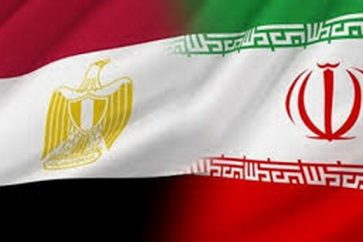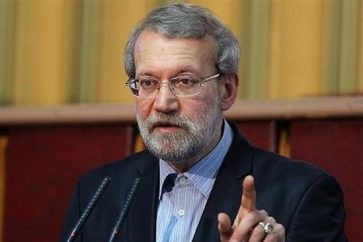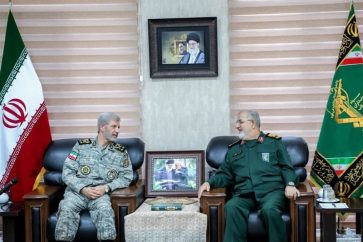Head of Iran’s Strategic Council on Foreign Relations Kamal Kharrazi says that the country is fully capable of building nuclear weapons and the only thing preventing this issue is the fatwa issued by the Leader.
In an exclusive interview for Al Mayadeen, Kharrazi articulated Iran’s stance on regional tensions, emphasizing the nation’s preparedness to respond to any escalation while expressing a desire to avoid further war. He highlighted Iran’s military capabilities and the potential for changes in its nuclear policy in response to perceived “existential threats,” framing the discussion within the broader context of Iran’s geopolitical stance and its commitment to national sovereignty.
In this context, Kharrazi emphasized that Iran has showcased its deterrence capabilities through Operation True Promise II, during which it launched hundreds of ballistic missiles on Israel, noting that in the time being, it is up to the Zionists; if they choose to continue their hostile actions, Iran will respond accordingly.
In response to questions about potential changes to Iran’s nuclear doctrine, Kharrazi indicated that such changes are possible, especially if Iran encounters an “existential threat”. He asserted that Iran has the technical capabilities to produce nuclear weapons and encounters no significant obstacles in this regard. However, he emphasized that the Fatwa issued by the Leader of the Islamic Revolution Ayatollah Seyyed Ali Khamenei serves as the sole constraint preventing Iran from pursuing nuclear armament.
The Iranian official also mentioned that policy changes would apply to projectiles. Kharrazi noted that Iran’s missile capabilities are well-known, having been demonstrated in various operations. He stated that the current focus is on the ranges of the missiles used thus far, in which they [the Iranians] have considered the concerns of Western countries.
However, Kharrazi maintained that, if Western nations do not acknowledge Iran’s concerns, particularly regarding its sovereignty and territorial integrity, Iran then will disregard the concerns of Western countries. Therefore, it is likely that Iran will develop and extend the range of its missiles.
Kharrazi addressed the “unequal” war in the region, telling Al Mayadeen that it is “led by Israel, which perpetrates ethnic cleansing and the extermination of people,” and is fighting those who are defending their lives, existence, and land.
He expressed hope that the war would come to a swift conclusion, asserting that Israel is engaging in “horrific ethnic cleansing” while mistakenly believing it has achieved victory. Kharrazi emphasized that such actions cannot be perceived as a true victory but rather as a profound violation of human rights.
He also highlighted Israel’s recent actions in blocking the United Nations Relief and Works Agency for Palestine Refugees in the Near East (UNRWA) from delivering essential supplies, stating that the agency “wants to provide water and food to the besieged people of Gaza, but they have been blocked from doing so.”
He emphasized that this move represents “the climax of anti-humanitarian values.”
He called on the international community to “wake up and exert pressure on Israel,” adding, “Unfortunately, we still see the West, including European countries and the United States, continue to support such a brutal and criminal entity and defend its actions by funding it and sending weapons.”
Kharrazi concluded that the implications of the situation and its eventual outcome are evident: the will of the people and their Resistance cannot be suppressed. He asserted that both the Palestinians and Lebanese are steadfast in their determination to resist, endure this oppression, and confront these atrocities until victory is achieved.
Within the context of ceasefire negotiations, Kharrazi emphasized that Iran does not intervene, asserting that it is the Lebanese and Palestinians’ right to negotiate and reach a ceasefire deal. Moreover, he affirmed his country’s support for any decision the countries make.
The Iranian official added that Iran remains committed to its previous agreements, provided that the other party also upholds its commitments. He expressed disappointment that the opposing side has not adhered to their obligations and, instead of engaging in negotiations, continues to impose sanctions on the Islamic Republic of Iran.
The Iranian official also discussed Iranian-Russian relations and broader regional dynamics, telling Al Mayadeen that Russia and China are “seeking to build a new international system to free themselves of Western dominance,” an objective Iran upholds.
He emphasized that emerging powers, including Iran, should play a prominent role in shaping a new world order that promotes more democratic governance, away from Western colonialism.
Kharrazi clarified that the steps taken so far within the frameworks of the Shanghai Cooperation Organization, BRICS, and the New Development Bank all align with this vision. He pointed out that Iran is a member of these organizations and is actively working toward establishing a new world order.
He also highlighted that the agreement between Iran and the Russian Federation is ready and it encompasses all aspects of bilateral relations and cooperation. Kharrazi noted that the agreement was originally scheduled to be signed during the recent BRICS meeting in Kazan, Russia, but the Russians preferred to finalize it during a bilateral visit to emphasize its significance, which will occur soon.
Kharrazi explained that all neighboring countries are aware of Iran’s strategic policy and are currently moving in that direction. He acknowledged that those who may not be pleased with this approach may resort to disseminating biased media narratives that do not serve regional interests.
Source: Iranian media




